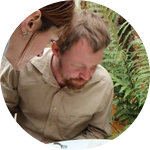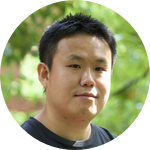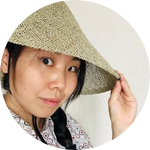About This Project
We have been making open-source PCR machines for decade. 1st generation thermal cycler NinjaPCR was released in 2013. Super fast PCR machines (video1, video2) in 2016 and 2017. During Covid pandemic 2020-2023, we developed $220 qNinja: 2nd generation qPCR (RT-PCR) and $45 qLAMP. Now let us start 3rd generation dNinja, Digital PCR (dPCR). dPCR is 1,000 times more sensitive than qPCR and essential to liquid biopsy for noncomunicable diseases that caused 74% of global death in 2019.
Ask the Scientists
Join The DiscussionWhat is the context of this research?
PCR tests are far more sensitive than antigen or -body tests, and are the only way to detect disease before becoming infectious. qPCR and dPCR make millions of fluorescent copies of target DNA which allow optical sensors to detect positive or negative results in real time. Due to their simplicity, qPCR and dPCR are mainly used for PCR tests and we open-sourced qPCR as $220 qNinja. By splitting the solution into tens of thousands of micro spaces before qPCR, dPCR is 1,000 times more sensitive than qPCR to mutation. That is necessary for liquid biopsy to detect DNA of minor mutations like cancer released from the tumor into the bloodstream. Patients can be monitored by picking 10-20ml (0.3-0.6oz) of blood without getting tissue surgically.
What is the significance of this project?
This is the world's first challenge to make open-source dPCR. dNinja will be most user-friendly and drastically cheaper than any other dPCR machines in the market. Almost everyone has no access to qPCR nor dPCR simply because it is pricy as $20k-200k and skill is needed to use it. qPCR can detect most of infectious diseases but 74% of global death comes from noncomunicable diseases. Liquid biopsy covers all of top 7 causes (heart disease, stroke, pulmonary disease, cancer, Alzheimer, diabetes, kidney disease) and dPCR is essential tool for them.
What are the goals of the project?
Our goal is to make well-documented open-source dPCR as we did with PCR and qPCR. As described in Methods and Lab Note, we start assembling a microscope, XY stage, and custom solder stencil to count positive/negative colors of qPCR solution in micro holes using deep learning model trained to detect and track holes with YOLOv8 and ByteTrack. Then we evaluate the device by calculating Poisson corrected concentration of custom standard DNA oligos with known concentration. A DIY guide will be written to make from scratch. dNinja kits and hard-to-make parts will be distributed at our online store with a detailed assembly guide.
As an extended goal, we will make a commercial model of dNinja to get FDA license for medical devices as we are working with qPCR and qLAMP.
Budget
As described in Methods, we will start making a variety of custom solder stencils, PCR plates, and XY stage connected to microscopes. The budget will be used to prepare all the required equipments and parts.
Endorsed by
 Project Timeline
Project Timeline
We needed $30k and 3 years to get our qPCR and qLAMP's first proof of concept. dPCR will be a long journey again.
The most important thing is to confirm that a solder stencil can be used for dPCR. We have enough connections to negotiate with Chinese laser factories directly. Our qNinja platform can be turned into dNinja in the shortest path.
Our background as software and hardware engineers allows us not to outsource anything for prototyping including deep learning.
Jun 29, 2023
Project Launched
Aug 31, 2023
1. Order custom stencils and set up off-the-shelf microscopes
Oct 31, 2023
2. Check dyed water can be held in holes of a stencil even after thermal tests.
Jan 31, 2024
3a. Apply Deep Learning model to detect and track holes and save their color data
Apr 30, 2024
3b. Simplify qNinja hardware and modify its software to work as dNinja PCR plate
Meet the Team
Team Bio
Shingo and Mariko are Japanese, independent, married, skilled engineers, tricksters, and culture heros. Their satellite finder AR app SpaceStationAR was used in Hayabusa2 planetary mission. They learned hardware from open-source gadgets and love to contribute back. Their $220 qPCR qNinja was chosen as the Top Technical Award Winner for the 2022 Amazing Maker Awards. Their $45 qLAMP qNinjaLite will be used for water tests in Ukraine and refugee camps. Rising 2 girls born in 2015 and 2019.
Shingo Hisakawa
Love to make almost anything from sushi to PCR. Made man-powered aircraft at Tokyo University and flew a mile. Speaker at Maker Faires worldwide.
Skill : PCB / 3D CAD / Linux / Web / Cloud / AI
Mariko Hisakawa
Love to make almost anything from leather crafting to PCR. Her Japanese workbook generator is used worldwide and changes the lives of users.
Skill : Embedded / Apps / IoT / Web / Cloud / AI
Project Backers
- 18Backers
- 108%Funded
- $9,805Total Donations
- $544.72Average Donation



